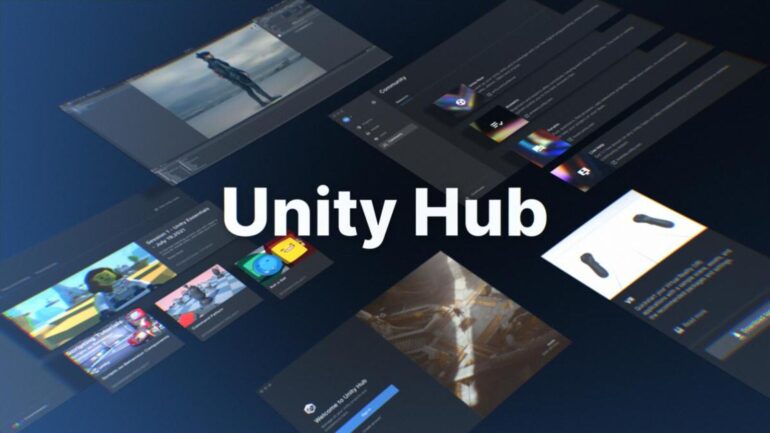TL;DR:
- Unity’s stock prices surged by over 15% after announcing an AI marketplace for game developers.
- The marketplace offers AI software for generating game dialogue, textures, and graphics from companies like Inworld AI and Polyhive.
- AI companies can distribute their software through Unity’s Asset Store and monetize their contributions.
- Unity executives foresee AI transforming game development, making it faster, cheaper, and better.
- Wells Fargo analyst Brian Fitzgerald gives Unity an overweight rating, suggesting potential for business expansion beyond gaming.
- The diminishing hype around the “metaverse” creates a buying opportunity.
- Unity’s shift towards AI garners attention, distancing itself from headset efforts and gaining support from Apple’s VR apps.
Main AI News:
In a remarkable turn of events, Unity witnessed a staggering surge of over 15% in its stock prices, with shares reaching an impressive $42.38 each on Tuesday. The catalyst behind this meteoric rise was the revelation of Unity’s groundbreaking marketplace for artificial intelligence software, catapulting the gaming tool maker into the forefront of the technology industry’s most scintillating sector.
Unity, renowned for its game engine software that empowers developers to create captivating games for mobile phones, consoles, and virtual reality headsets, has now taken a remarkable stride forward. The company’s customers will soon have access to an array of cutting-edge software, harnessing the power of AI. This transformative technology will revolutionize various aspects of game development, from generating intricate dialogues to crafting immersive textures and graphics. Independent companies like Inworld AI and Polyhive will contribute their expertise to this awe-inspiring endeavor.
The introduction of Unity’s AI marketplace also serves as a monumental opportunity for AI companies themselves. They will now have the capability to distribute their revolutionary software directly to game developers via Unity’s esteemed Asset Store, while having the freedom to charge for their valuable contributions. This symbiotic relationship promises to unlock infinite possibilities and reshape the gaming landscape as we know it.
This dramatic surge in Unity’s stock price comes as no surprise when considering the recent discourse surrounding the untapped potential of AI. Company officials have been ardently discussing the transformative impact of AI on gaming, highlighting the profound changes it will usher in. Unity’s CEO, John Riccitiello, emphasized the expeditious, cost-effective, and enhanced game development process that AI will enable. In an interview with the Associated Press published on Monday, he stated, “I think AI will change gaming in a couple of pretty profound ways. One of them is it’s going to make making games faster, cheaper, and better. It’s already happening.”
In addition to this groundbreaking announcement, Unity received an overweight rating from Wells Fargo analyst Brian Fitzgerald, who also set a target price of $48. Fitzgerald and his team believe that Unity’s current share price presents an opportune moment for investors, and they foresee the company expanding its horizons beyond gaming. They predict Unity’s foray into ventures like “digital twins” and other simulation products for enterprises, further solidifying its position as a formidable force in the market. Fitzgerald wrote, “Though we acknowledge that interactive entertainment industry consolidation may, over the long term, drive the development and use of proprietary game development tools/assets by large studios, we believe in Unity’s strong competitive positioning in the space.”
The note issued by Fitzgerald also shed light on the diminishing “metaverse” hype, highlighting the unique opportunity it presents for potential investors. Unity, formerly associated with headset efforts like Meta’s, has successfully shifted the focus towards AI, drawing immense attention from discerning stakeholders. Notably, Apple recently announced that VR apps created using Unity would be supported on their highly anticipated Vision Pro headset, slated for an early release next year.
Interestingly, Riccitiello expressed his disdain for the term “metaverse,” a phrase that Apple deliberately avoids using. In the aforementioned interview with the Associated Press, he candidly stated, “I always thought the word was loaded and kind of stupid.” This perspective further solidifies Unity’s commitment to innovation, emphasizing its unwavering dedication to pushing the boundaries of possibility and transforming the gaming landscape for the better.
Conclusion:
Unity’s unveiling of an AI marketplace has propelled the company to the forefront of the technology industry. This move has significant implications for the market, as it signals the convergence of AI and gaming, promising faster, more cost-effective, and superior game development processes. Unity’s surge in stock prices reflects investor confidence in the company’s strategic direction and its potential to expand into new business ventures beyond gaming. The diminishing hype around the metaverse further contributes to Unity’s appeal, creating a unique buying opportunity. With Apple’s endorsement of Unity’s VR apps, the company solidifies its position as a key player in the industry, poised to shape the future of interactive entertainment.

